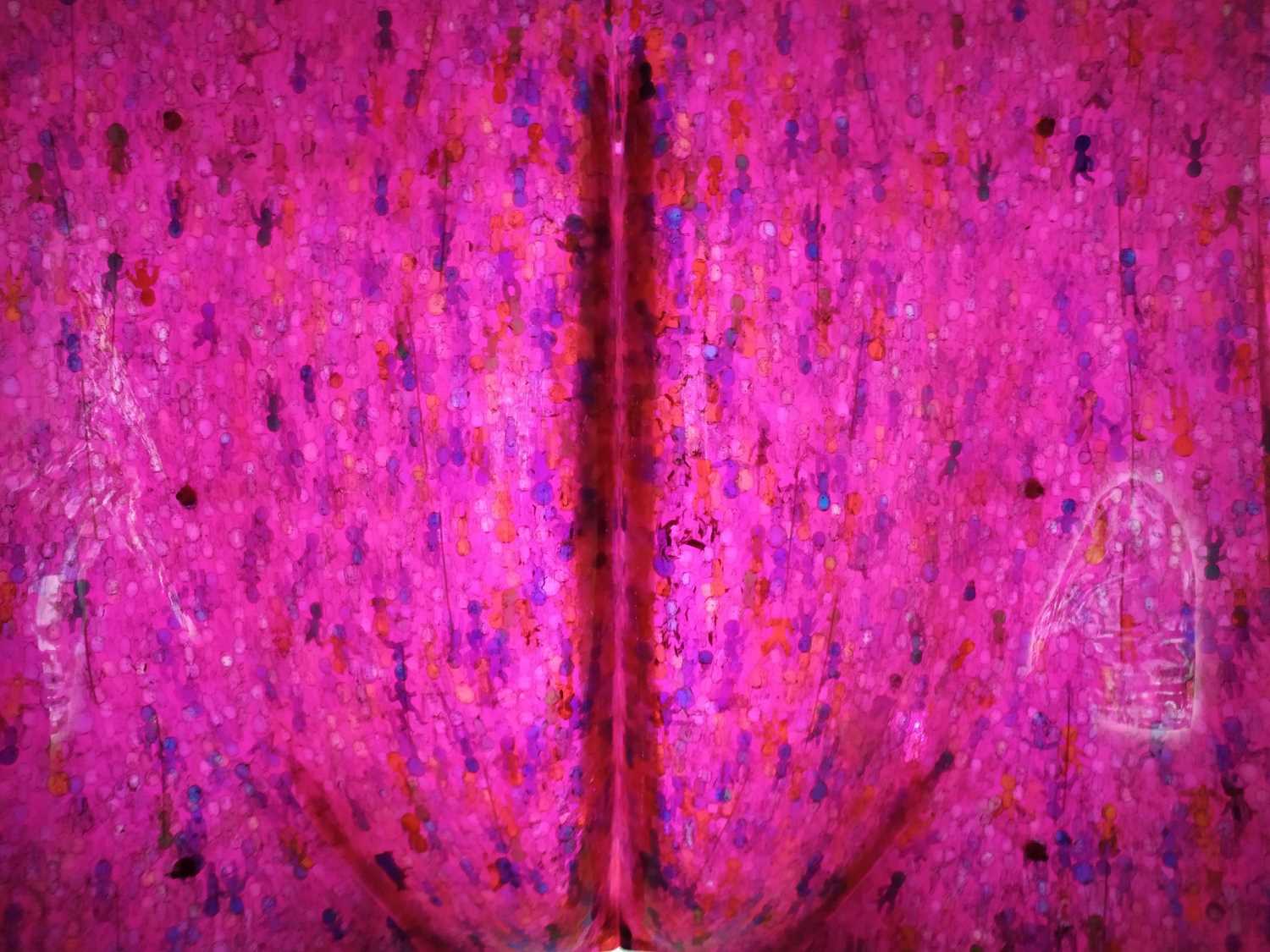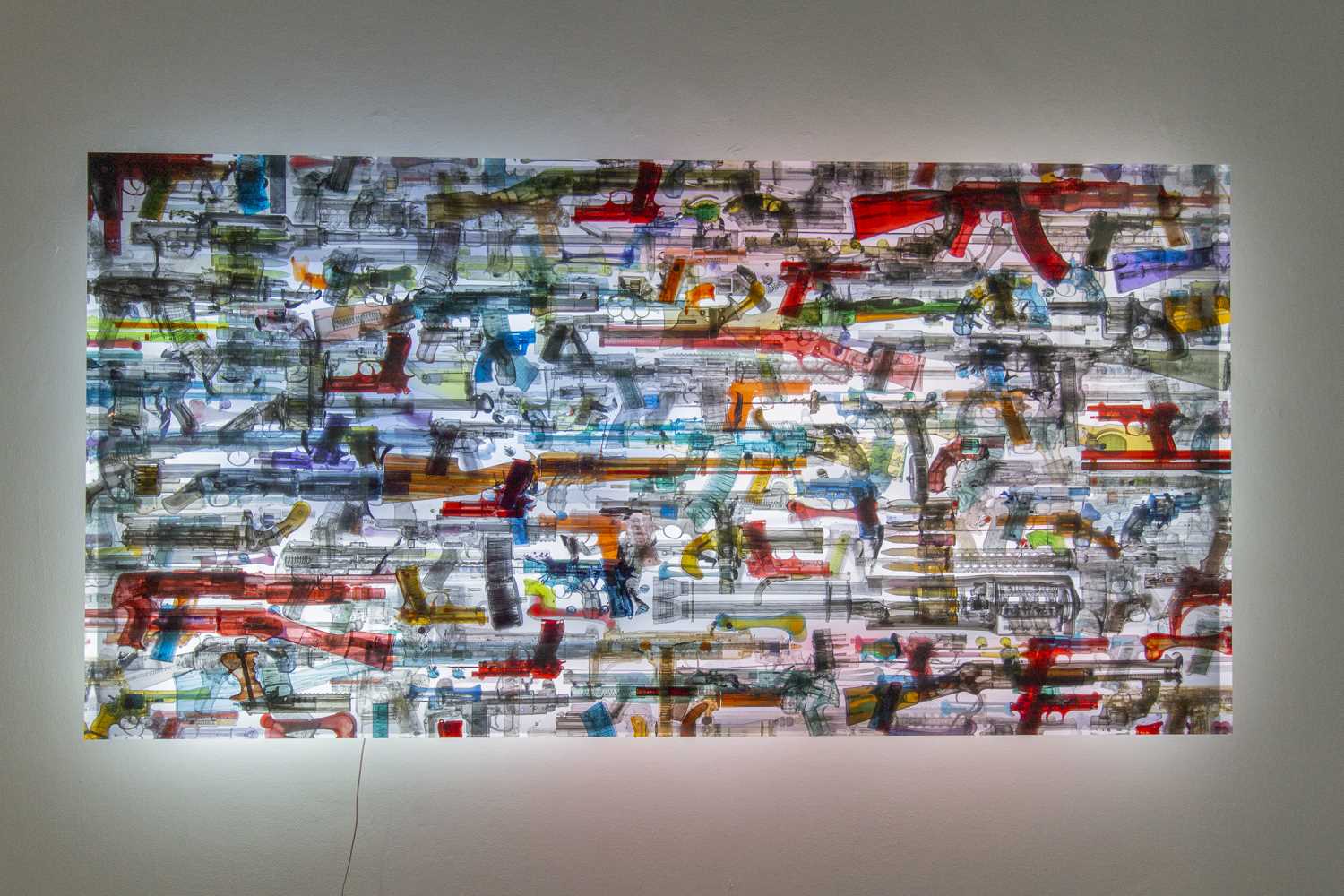Prague’s most famous and certainly most controversial living artist is 52-year-old David Černý. An exhibition of his most recent work won’t do anything to make him less controversial. Last Works / Poslední práce at DSC Gallery, running to October 6, has a collection of mostly sex-related sculptures and installations.
While his recent public art such as the Head of Franz Kafka at the Quadrio shopping mall or moving insect car on a giant pin called Beetle (Brouk) at BB Centrum have added some modern charm to the art scene, there is another side to his output. A part of his work seems to be provocative just for the sake of provoking, These works are simply meant to troll the critics and the public.
The centerpiece of Last Works is a several-meter long submarine made of flesh-tone rubber and meant to look like a giant phallus with hairs sticking out of it. To make it more challenging for the viewer, there are four torpedo holes in the front instead of the typical one on the real male item.
In the back of the gallery, more flesh-tone phallic images can be seen on top of robot vacuum cleaners, randomly bumping into each other.

The theme continues along the walls, with various common objects turned vulgar by having a scrotum attached. A banana, microphone, bread roll, crumpled plastic bottle, toy horn and various tools all are shown with added male anatomy. These resemble the sort of adolescent sketches one might expect to find in the back of a notebook for a boring math class, but given new importance by rendering them full-sized and in three dimensions.
Women are not left out. A large wall hanging made of flesh-toned rubber offers a 1.5 meter tall incredibly realistic depiction a woman’s vulva, also complete with a few stray hairs.
There are a few less-controversial pieces of molded colored plastic. Most of these also seem to be anatomically inspired, but at least given a bit of interpretation by different colors and textures.
One piece is a throwback to his work of a few years ago, with collections of common items encased in clear plastic. See-through guns and other weapons are in a plastic matrix, resembling an enlarged image from an airport X-ray scanner. It is perhaps the only image from the show that one could safely share on social media — images of violence are safer than sex on most social platforms.

Recently, another artist, Maurizio Cattelan, duct-taped a banana to a wall and sold two copies for $120,000 each, sparking a firestorm in the critical art press. Many people questioned what made this art, while others praised it as one of the most important concept art efforts so far this century.
Černý seems to be going down the same route. Writers will either have to either praise these as the new important works of a unique visionary embracing the most basic concept of art and humanity — the glorification of the reproductive organs — or juvenile trash come to life simply because the artist can get not only away with it but sell it for a hefty sum.
In the past, Černý has made some quite interesting works, going all the way back to his walking Trabant sculpture called Quo vadis in 1990 and Pink Tank in 1991.
His 2005 work called Shark, with an image of Saddam Hussein in a tank of formaldehyde, was a legitimate if satirical challenge to Damien Hirst’s dead shark in a tank.
He also made a series of plastic kits, resembling toy models with pieces that could be snapped off a plastic frame and assembled, only these were life size. The models included a rock star, Jesus Christ, artist, Eve, and a dead raped woman. This series, while controversial, did raise ideas about the objectification and commodification of various people, even crime victims.
He took on the art scene in the European Union, with his 2009 piece Entropa which was supposed to involve artists from across the EU but was just made by him. It was filled with insults for the various countries, and parts were eventually covered up. One could argue that Entropa, made to highlight the Czech turn at leading the EU, asked questions about the general blandness of publicly funded art.
But Last Works lacks any sense of sophistication behind the controversy. Like a bad horror film, it is shocking just to be shocking without adding anything to its genre.
Despite the title “last works,” he is not retiring. That is good because these would be a sour note to go out on. He does have several large public projects in the works, though, including a train connecting two buildings, a ship crashed into a high-rise building and giants holding up the sides of a house, so perhaps these juvenile pranks are not his swan song.
DSC Gallery, at Dlouhá 5 in Prague’s Old Town, is open Monday to Saturday for 1 to 7 pm. Last Works runs to October 9.












 Reading time: 4 minutes
Reading time: 4 minutes 



























